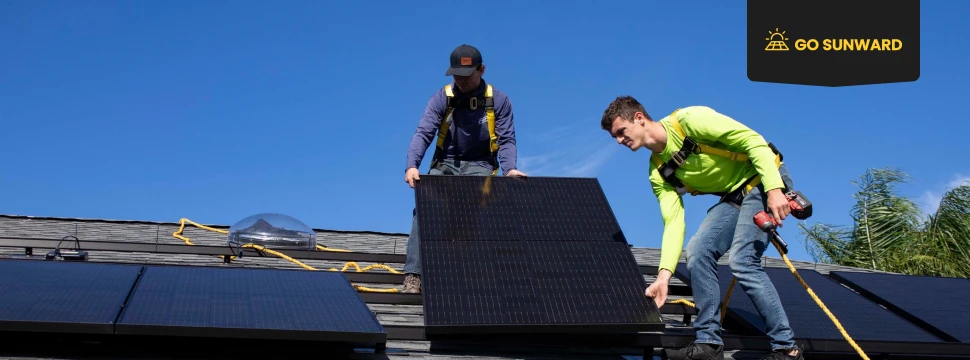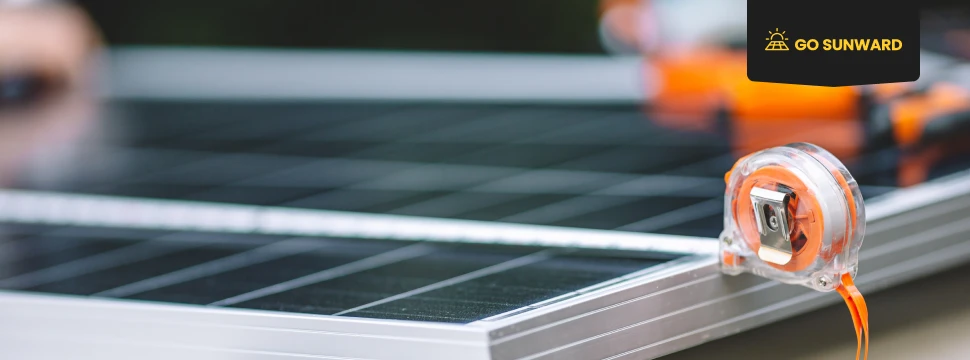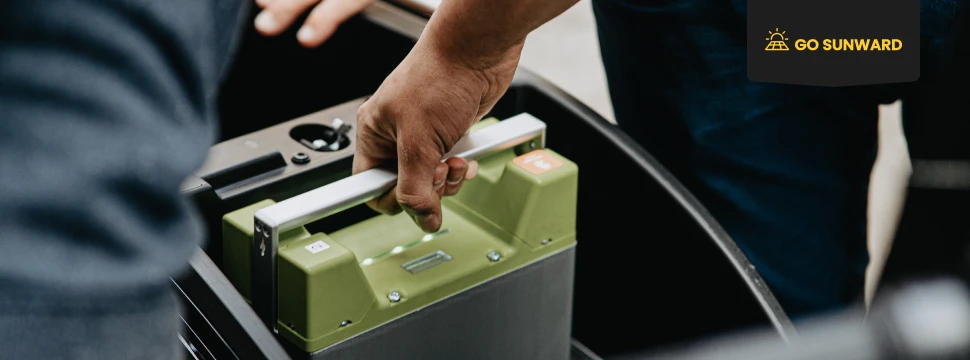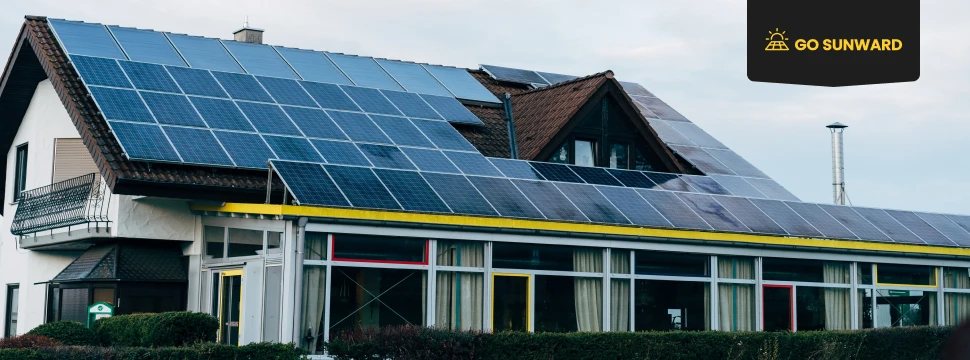What Maintenance Is Required For Solar?
Solar panel maintenance is a critical aspect of ensuring the efficient and long-term operation of solar energy systems. As the popularity of solar energy continues to soar, it becomes increasingly crucial to emphasize the significance of proper maintenance to maximize the benefits of this sustainable power source. In this article, we will delve into this very topic, answering the question ‘what maintenance is required for solar?’. Our aim is to provide you with a comprehensive overview of the key maintenance tasks required to keep your solar panels performing at their best. Whether you are a homeowner looking to optimize your energy savings or a business owner looking for solar advice, understanding solar panel maintenance is a vital step towards harnessing the full potential of low carbon energy.
Understanding Solar Panel Maintenance
Solar panel maintenance encompasses a set of essential tasks and practices aimed at ensuring the optimal performance and longevity of solar panels. These tasks go beyond mere cleanliness; they involve a range of actions designed to keep your solar energy system in top condition.
Regular solar maintenance is required for the efficiency and longevity of solar panels for several reasons.
Firstly, it helps preserve the panels’ efficiency in converting sunlight into electricity. Over time, dirt, dust, pollen, leaves, bird droppings, and other debris can accumulate on the surface of solar panels, obstructing the sunlight’s path and reducing their energy-capturing capability. Regular cleaning and maintenance ensure that your panels can continue to generate electricity at their maximum capacity.
Secondly, maintenance is essential for the longevity of your solar panels. Solar panels are a long-term investment, typically designed to last 25 to 30 years or more. However, without proper care, their operational life can be significantly shortened. Regular maintenance practices, such as cleaning and inspections, can help identify and address issues early on, preventing small problems from escalating into more significant and costly ones.
Furthermore, maintenance plays a pivotal role in maximizing the return on investment (ROI) of a solar energy system. Solar panels are a substantial financial investment, and their efficiency directly impacts the amount of electricity they generate and, consequently, the savings on your energy bills. Neglecting maintenance can lead to decreased energy production and potential long-term issues, ultimately diminishing the ROI of your solar panel system.
Routine Cleaning and Inspection
So now onto the question: What maintenance is required for solar?
Routine cleaning and inspection form the cornerstone of solar panel maintenance. It is typically advised that you perform solar panel cleaning between two and four times per year.
Solar panels are exposed to the elements, and over time, they naturally accumulate dirt, dust, pollen, leaves, bird droppings, and other debris. This accumulation acts as a barrier, obstructing the sunlight from reaching the solar cells and reducing the panels’ energy-harnessing capabilities. As a result, routine cleaning is essential to remove these obstructions, allowing your panels to capture as much sunlight as possible.
Cleaning solar panels is a straightforward process, but it must be done with care to avoid damaging the panels or compromising safety. To safely clean your solar panels, follow these step-by-step guidelines:
- Safety First: Before starting, turn off the solar panel system to avoid electrical shock. If your solar panels are on the roof, you can use proper fall protection equipment and take necessary precautions.
- Gather Supplies: Gather the necessary cleaning supplies, including a soft brush or sponge, a bucket of soapy water (mild dish soap is suitable), a hose or deionized water, and a soft cloth for drying.
- Gentle Cleaning: Dip the brush or sponge into the soapy water and gently scrub the surface of the panels. Avoid using abrasive materials or harsh chemicals that may scratch or damage the panels.
- Rinse Thoroughly: Rinse the panels thoroughly with clean water to remove all soap residue. You can use a hose or deionized water for this purpose.
- Dry Carefully: Use a soft, lint-free cloth to dry the panels gently. Avoid using abrasive materials that may scratch the surface.
Regular inspections complement cleaning by helping you identify and address potential issues early on. During inspections, check for any visible damage, loose connections, or signs of wear and tear. Inspect the wiring, junction boxes, and mounting hardware.
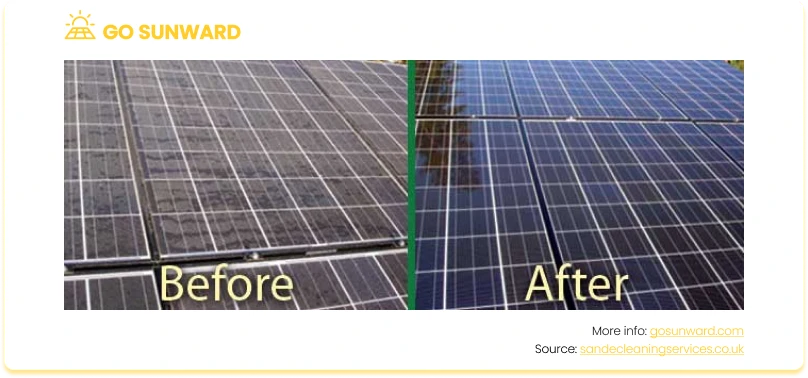
Monitoring Energy Production
Monitoring solar panel performance is a good idea for several reasons. Firstly, it allows you to track the actual energy production of your system over time. By comparing real data against the expected output, you can quickly identify any deviations or drops in performance, indicating potential issues that require attention. Monitoring also provides insights into daily, monthly, or yearly energy generation patterns, enabling you to optimize energy consumption and savings. LINK.
Setting up monitoring systems is relatively straightforward. Most modern solar panel installations come equipped with monitoring solutions that provide real-time data accessible through web or mobile applications. These systems typically display information such as energy production, system voltage, current, and temperature. To interpret the data, look for any significant deviations from your system’s expected performance. For example, a sudden drop in energy production may indicate location and shading issues, panel malfunctions, or dirty panels that require cleaning.
Moreover, monitoring helps detect and resolve issues promptly. If you notice a decrease in energy production, it’s essential to investigate the cause and take corrective action promptly.
Solar Inverter Maintenance
Inverters play a crucial role in a solar energy system by converting solar panels’ direct current (DC) electricity into usable alternating current (AC) electricity for your home. For an in-depth look into inverters, click here.
Proper inverter maintenance is essential to ensure the seamless operation of your solar energy system. Inverters are typically designed to be durable and low-maintenance. However, some routine tasks can help extend their lifespan and maintain efficiency. Inverter maintenance tasks may include cleaning, inspection, and occasional tightening of electrical connections.
Regularly inspect your inverter for signs of physical damage, loose connections, or overheating. Clean the exterior of the inverter as needed to remove dust and debris that may accumulate over time. Inverters are equipped with safety features that shut them down in the event of a malfunction or excessive heat. If you encounter frequent shutdowns or errors on the inverter display, it may indicate an issue that requires professional attention.
Consider inverter replacement or upgrades when your solar panel system’s overall performance starts to decline, and your inverter reaches the end of its expected lifespan. Newer solar inverters often come with improved efficiency and features that can enhance your solar energy system’s performance.

Battery Maintenance
Batteries play a crucial role in storing excess energy generated by your solar panels for use during periods of low sunlight or at night. If your solar energy system includes batteries, proper maintenance is essential to ensure their performance and longevity.
Batteries require occasional maintenance tasks to optimize their lifespan and performance. These tasks may include checking electrolyte levels, inspecting connections, and ensuring proper ventilation in the battery enclosure. Depending on the type of batteries in your system, specific maintenance requirements may vary, so it’s essential to consult the manual.
Seasonal and Weather-Related Considerations
Seasonal changes, such as falling leaves in autumn or heavy snow in winter, can obstruct sunlight and reduce solar panel efficiency. Regularly cleaning your panels to remove debris, particles and snow buildup can help maintain optimal performance. Additionally, ensuring proper panel tilt and orientation during installation can minimize the impact of seasonal variations on energy production.
Extreme weather conditions, including hailstorms, high winds, or hurricanes, can pose risks to solar panels. Consider installing protective measures, such as hail guards or wind deflectors, to shield your panels from potential damage. Regularly inspect your solar panel mounting structures and connections to ensure they can withstand severe weather.
Different seasons may require specific maintenance tasks. For example, it may be advisable to conduct a thorough panel inspection and cleaning before the winter season to maximize energy production during the months with lower sunlight.
Professional Maintenance Services
While homeowners can perform many maintenance tasks, there are instances where seeking professional maintenance services is advisable. Knowing when to enlist professional help, understanding the benefits of professional inspections, and finding reputable solar panel maintenance providers are crucial considerations.
It is advisable to seek professional maintenance services (look for the best solar companies in your area) when you encounter issues that go beyond routine cleaning and inspections. If you notice persistent drops in energy production, frequent inverter malfunctions, or complex electrical problems, consulting a professional with expertise in solar panel maintenance is recommended.
Professional inspections offer several benefits, including a comprehensive assessment of your entire solar energy system, identification of hidden or complex issues, and access to specialized equipment and expertise. Regular professional inspections can provide peace of mind, ensuring that your solar panel system operates efficiently and safely.
A Note On Warranty!
It’s crucial to choose solar panels with a good warranty. Declining panel efficiency can lead to significant long-term costs. If your solar panel is under warranty, the installing company will replace it. A reputable solar company typically provides a warranty spanning 15 to 25 years, ensuring that your solar panels maintain an energy production efficiency of 80% or higher throughout the entire duration of the warranty period.
How Long Do Solar Panels Last?
According to GoSunward research, the typical lifespan of residential solar panels typically falls within the range of 25 to 30 years. Read more in our full article about this: How Long Do Solar Panels Last?
Conclusion
This article has provided a comprehensive overview of essential solar panel maintenance practices that are vital for optimizing the performance and ensuring the longevity of your solar energy system. By summarizing the key points discussed, we aim to give you a clear understanding of what maintenance is required for solar, and provide you with some proactive tips on how to maintain your solar panels.
Regular maintenance isn’t just a recommended practice; it’s a critical aspect of ensuring that your solar energy system operates at its highest potential. Neglecting maintenance can lead to decreased energy production, increased repair costs, and a diminished return on investment. By taking proactive steps and following the maintenance guidelines provided in this article, you can extend the life of your solar panels and maximize their efficiency.

